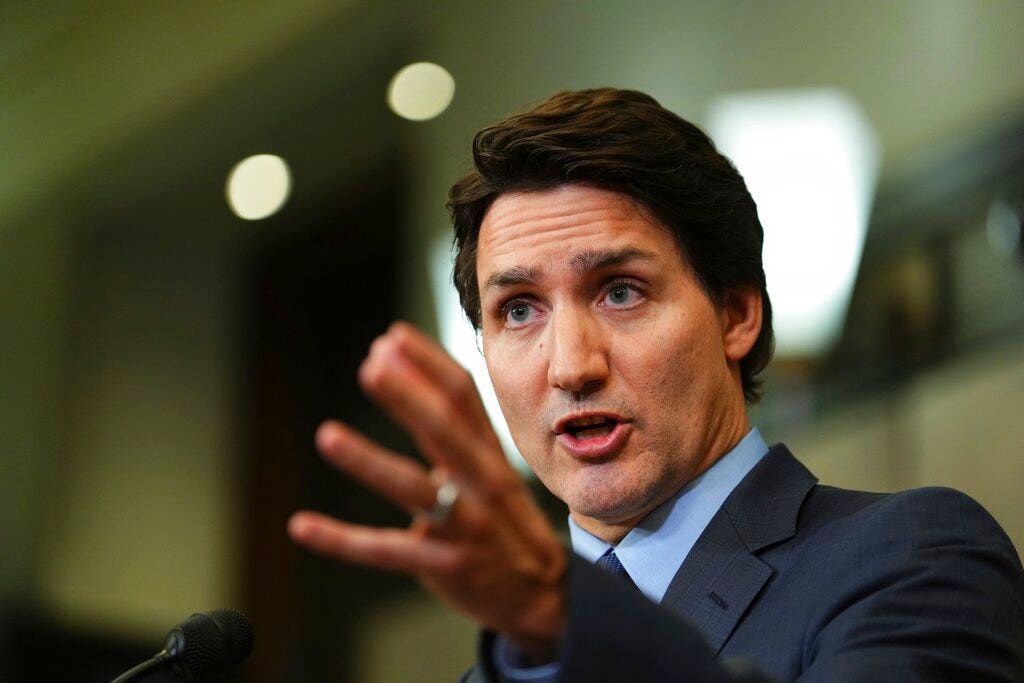
In a stunning turn of events, former US President Donald Trump has proposed an unprecedented merger between the United States and Canada, suggesting the latter become the 51st state, with current Canadian Prime Minister Justin Trudeau serving as its governor.
Trump’s proposal stems from his belief that a unified North American bloc would strengthen the economic and political might of the continent, mirroring the European Union. He argues that such a merger would eliminate trade barriers, boost economic growth, and enhance security measures across the continent.
Moreover, Trump specifically suggested Trudeau as governor due to his admired leadership and handling of the COVID-19 pandemic in Canada.
Prime Minister Trudeau has remained diplomatic in his response, stating that he appreciates Trump’s recognition of Canada’s strengths but clarifies that “Canada has long valued its independence and sovereignty.”
Trudeau emphasized that any such merger would require significant consideration and consultation with the Canadian people, and that he would not support any proposal that undermines their interests.
The potential merger raises complex legal and constitutional questions. Both the US and Canadian constitutions require substantial amendments to accommodate such a significant geopolitical shift.
Moreover, the merger would have profound implications for Canadian sovereignty, citizenship, and legal systems. Experts suggest that extensive negotiations would be necessary to address these intricate details.
Public opinion on both sides of the border is divided on the proposal. While some polls indicate that a significant minority of Americans support the merger, the majority of Canadians remain skeptical.
Canadian critics argue that the merger would erode their national identity and potentially lead to diminished autonomy in decision-making.
Economists generally agree that a US-Canada merger would have a positive impact on both economies. Elimination of trade barriers would boost cross-border commerce and stimulate investment.
However, they also caution that economic disparities between the two countries could necessitate substantial financial transfers or other mechanisms to mitigate regional imbalances.
A US-Canada merger would significantly reshape the North American security landscape. It would likely lead to enhanced cooperation on defense, intelligence, and counter-terrorism.
Some experts argue that such a merger would make the continent more secure from external threats, while others express concerns about the potential militarization of Canada and its implications for regional stability.
Trump’s proposal has ignited a lively debate about the future of North America. Whether or not the merger actually materializes, it has highlighted the enduring desire for closer economic, political, and security ties between the United States and Canada.
As the issue continues to be explored, it is crucial that both countries engage in open and transparent dialogue that prioritizes the interests and aspirations of their respective citizens.

You may also like
-
Iowa Basketball Races Past Kansas State In First Round Of NIT
-
Garth Brooks, Trisha Yearwood Have Discussed Living In Ireland, He Says
-
Steelers, DL Cameron Heyward Agree To 3
-
Steelers' Cam Heyward Named Walter Payton Man Of The Year
-
Bernie Sanders Backs Trump's Talk Of Making Canada The 51st State, With A Caveat